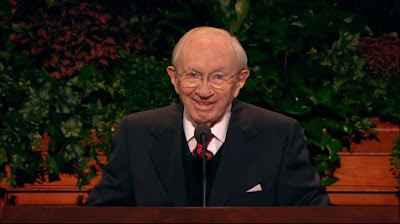Another funeral. Another one. I selfishly loathe that, yet again, our leisurely Saturday morning is robbed. We are practically in the back yard of my husband's large side of the family, and their connections run deep in this community. Although it defies reason, I swear that every single person to enter the local morgue is somehow my husband's god-parent. Seeing a corpse in a casket practically every weekend, we talk about death all the time.
Perhaps I am still numb to funerals, even of close family members, after attending the third one in so many months when I was a fifth grader. I hated my fifth grade teacher, but even she felt sorry for me after #3, and gave me a genuine hug in front of the whole class.
Numb, perhaps. But certainly not indifferent. In our home, we talk about death all the time. Hubs has spent the last couple years professionally counseling people about death taxes, death benefits, etc. He freely admits that his job his hard because "nobody wants to think about their own death."
Maybe that is why my first doctor was adamant that I didn't have cancer, not wanting death to enter the conversation. Whereas the oncologist he passed me off to, after hearing me flippantly throw out, "but I don't actually have cancer, I'm only here as a precaution..." looked at me, troubled, and staring squarely into my face said, "I don't know why someone would have told you that. Yes, you certainly do have cancer." I was literally in an oncologist's office scheduling my radiation treatment, and nobody had bothered to admit that I was a cancer patient until that very moment.
As a natural necessity to our complicated lives, we talk about death all the time. It is an omnipresent threat. My husband saw his mother choke and die right in front of him without any warning. His sister, a nurse practitioner, was present, but nothing could save my mother-in-law. Whether one is good, bad, or indifferent, my husband and I understand that when one's number is up, there's no hiding from it.
All this sounds very dark and full of pathos, enough to make someone hardened to the harsh reality that this life is temporary. But I think that our abundant exposure to death and its threat, have redirected our mindsets from fear of death to acceptance of death. Not acceptance in a resigned sort of way, but acknowledging its necessary, and even blessed, purpose to life.
President Nelson, himself abundantly familiar with death because of his profession as a surgeon for whom he admitted, it was not a good prognostic sign to be his patient, characterizes death as neither necessarily positive nor negative, but simply as a doorway:
Returning from earth to life in our heavenly home requires passage through—and not around—the doors of death. We were born to die, and we die to live. (See 2 Cor. 6:9.) As seedlings of God, we barely blossom on earth; we fully flower in heaven....
Scriptures teach that death is essential to happiness: “Now behold, it was not expedient that man should be reclaimed from this temporal death, for that would destroy the great plan of happiness.” (Alma 42:8; italics added; see also 2 Ne. 9:6.)
I recently finished Orson F. Whitney's epic novel in verse, Love and the Light. Near the end, the couple whom we have followed are aging and approaching their lives' ends:
Loyalty and zeal continued,
And with faithfulness unflagging
Side by side they strewed and gathered
Through their mortal years remaining.
Till the final call, “Come higher”;
When her soul—then his—responded
Last year I took a fabulous yoga and medication class taught by a very dear friend I met at the Jerusalem Center. At one point, we sat for a guided meditation session where she encouraged us to imagine we were floating up, up, up-- higher, higher, and higher. I imagine that the moments after death are like this. In a conduit of light, we break physical barriers and cross space and dimension, floating up, up, up until we enter God's realm. We answer the call, "Come higher" until we reach pure light and true peace.
With such a vision, of the contentment that surely exists for the souls of the deceased, can you see why it is neither scary nor morbid that we talk about death all the time? We see it as an inevitable transition, our universal heritage, our only way to find rest from mortal strife. It is anything but taboo in our home, as it motivates us to be our very best while we have today to live.
With such a vision, of the contentment that surely exists for the souls of the deceased, can you see why it is neither scary nor morbid that we talk about death all the time? We see it as an inevitable transition, our universal heritage, our only way to find rest from mortal strife. It is anything but taboo in our home, as it motivates us to be our very best while we have today to live.
With that assurance, brothers and sisters, love life! Cherish
each moment as a blessing from God. (See Mosiah 2:21.)
Live it well—even to your loftiest potential. Then the
anticipation of death shall not hold you hostage.
----
Russell M. Nelson, Doors of Death,
April 1992
Russell M. Nelson, Decisions for Eternity, October 2013



